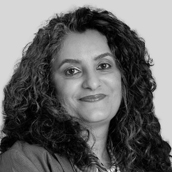
Sunita Singh-Dalal is Partner leading the Private Wealth & Family Offices at Hourani in the UAE. She advises on complex cross-border estate and succession planning, wealth management, formulating and implementing family codes of governance, family constitutions, and establishing family offices.
For centuries, the Middle East has been a pivotal hub of global commerce and culture. Today, it is emerging as a powerhouse in private wealth migration, led by bold economic reforms, geopolitical ambition, and a fresh vision for ultra-high-net-worth individual mobility. Nowhere is this more evident than in the UAE and the Kingdom of Saudi Arabia, both of which are reshaping the global wealth landscape.
The UAE has again secured its place as the world’s leading destination for millionaire migration, according to the Henley Private Wealth Migration Report 2025, and is also laying the groundwork for long-term dominance in asset management and wealth preservation, bearing testimony to its leadership’s resilient spirit and pioneering vision. Meanwhile, Saudi Arabia is rapidly gaining ground, positioning itself as the Gulf’s next frontier for investment, innovation, and family office infrastructure. Together, these nations signal a decisive shift in the global center of gravity for private wealth.
The UAE is expected to see an unprecedented net inflow of +9,800 high-net-worth individuals this year, proving its position as a premier destination for private wealth. The Dubai International Financial Centre (DIFC) recorded 120 family offices collectively managing assets valued at approximately USD 1.2 trillion. DIFC also saw a 33% increase in the creation of family-related wealth management entities, alongside a 51% rise in the establishment of foundations and a 50% increase in the number of hedge funds. Today, the DIFC hosts 410 wealth and asset management firms, with more than 10,000 funds managed or marketed from this leading financial hub.1
Despite regional political volatility and tension, investment migration to the UAE shows no sign of slowing. On the contrary, some may argue that such instability is accelerating the success of the Emirates’ financial centers.2
Amendments to the UAE’s personal status laws — notably the disapplication of Islamic Sharia principles for expat residents in matters such as marriage, divorce, and inheritance — have proven especially attractive to many ultra-wealthy investors relocating to the country. The availability of secular asset protection and succession planning options, on a par with those in other leading international financial centers, further reinforces the Emirates appeal as a long-term, universal destination for diversified and sustainable global wealth.
As seasoned economist and global fund administrator, Dr. Bhaskar Dasgupta, Chairman of the Apex Middle East and India Boards observes, “the UAE’s rise as an asset management hub is powered by its strategic location, world class infrastructure, availability of massive pools of capital, English common law jurisdictions, and a regulatory environment that transforms global wealth into local opportunity”.3

The UAE is home to two world-class financial centers, each operating under its own common law legal system: the DIFC, established in 2004, and the Abu Dhabi Global Market, launched in 2015. Together, they offer global investors robust and reliable legal frameworks.
Notably, the introduction of an OECD-compliant corporate tax framework in 2023 did not deter global wealth inflows — instead, it contributed to a rise in FDI. To date, the UAE has executed 140 double taxation agreements and continues to expand its fintech and AI-enhanced digital economy, underpinned by blockchain solutions.
Strategically, the country is positioning itself as a global leader in AI investment, as reflected in its USD 1.4 trillion commitment to the US–UAE AI Acceleration Partnership in May 2025. This momentum, combined with structural reforms designed to support fund passporting and promote the domiciliation of funds and REITS, has attracted major institutional players such as Blackrock and Goldman Sachs, both of which have made significant investments in the region to capitalize on its trajectory of prosperity.
While Abu Dhabi and Dubai continue to lead in attracting FDI, other emirates are also positioning themselves to capture growing capital inflows. A notable contender is the northern emirate of Ras Al Khaimah (RAK), which is rapidly emerging as a lifestyle-led investment and tourism-driven real estate destination.
RAK’s transformation began with the establishment of RAKICC and RAKEZ, two freezones providing a comparatively cost-effective and lightly regulated business environment. This evolution has been further accelerated by a high-profile tourism project: the Wynn Resort, due to open in 2027, which is said to feature the region’s first integrated and responsibly regulated gaming destination.
Investor sentiment has already responded. According to Knight Frank, 46% of global high-net-worth individuals now view RAK as a more attractive real estate destination because of this development. Among UAE-based high-net-worth expatriates, 80% believe the Wynn Resort project significantly enhances RAK’s appeal as a real estate investment destination.
Since its launch in 2019, the UAE’s Golden Visa program has undergone regular enhancements to ensure it remains an attractive proposition for those seeking long-term residence. In the past nine months, five new sponsor-free categories have been introduced. These include nurses and healthcare professionals, e-sports and gaming experts, exceptional educators in Dubai, luxury yacht owners in Abu Dhabi, and digital content creators, influencers, and filmmakers.
In parallel, the UAE stands out globally for formally recognizing the significance of family-owned businesses in its national development. It remains the only country to enshrine the family’s role within its economic and social policy frameworks. The Dubai Social Agenda 33, backed by a dedicated budget of AED 208 billion, places family cohesion, generational prosperity, and human development at the center of national strategy.
Under the framework of its Vision 2030, Saudi Arabia, which ranks 5th in provisional net millionaire inflows for 2025, is actively diversifying its economy and positioning itself as a competitive regional destination for FDI, family offices, investors, entrepreneurs, and skilled experts.
A suite of revised regulations and investor-focused incentives introduced in 2024, including residence programs designed to attract global talent and capital, is yielding unprecedented results. New investment opportunities are emerging across innovative sectors such as tourism, entertainment, and renewable energy. At the same time, international banks are establishing dedicated offices, while multi-national corporations are being drawn in by competitive tax incentives to establish their regional headquarters in the Kingdom.
Flagship initiatives such as the Riyadh Sustainability Strategy and the development of special economic zones further demonstrate Saudi Arabia’s commitment to building a globally competitive, innovation-led economy.
The contribution of family enterprises to the Kingdom’s prosperity is not overlooked. Recent regulatory changes aim to ensure the long-term stability of these enterprises4 while supporting broader economic growth. The Ministry of Investment for Saudi Arabia is undertaking a review to establish a more structured investment framework tailored to family wealth.
Given that Saudi Arabia has one of the fastest growing populations among G20 nations, state-supported institutions such as the National Center for Family Business (NCFB), given its visionary leadership, plays a key role in supporting family-owned businesses across the Kingdom.
In 2024, Riyadh hosted its first private client cross-border conference, attended by both the Ministry of Finance and the NCFB. The event brought together global private wealth professionals who spoke alongside their Saudi counterparts and entrepreneurs, some of whom shared their five-year visions for the Kingdom’s evolving private wealth landscape.
Whether one views the UAE and the Kingdom of Saudi Arabia as evolving nations or as states undergoing a renaissance, a significant global repositioning is undeniably underway. The UAE’s BRICS membership, its repeated participation in G20 summits, and its recent invitation to join the G7 Summit all reflect its growing commitment to strengthening international cooperation.
Does this economic transformation pose a threat to more volatile and less stable economies — or does it present an opportunity to strengthen cross-border relationships and expand reciprocal global investment and migration flows? Opinions may vary, but what is indisputable is this: the region’s ongoing enhancements in infrastructure, investment potential, digital innovation, and wealth-oriented benefits will continue to attract the world’s wealthiest.
This enduring appeal is driving a fundamental shift — one that will see the UAE and Saudi Arabia increasingly positioned as global magnets for private wealth and influence.
Note: The author would like to acknowledge Mr. Mohannad Al Abed and Ms. Karen Kahale for their invaluable assistance in producing this essay.
Notes and references
1 E-mail from DIFC to Sunita Singh-Dalal
2 See How the UAE is Shaping the Future of Family Offices Setup for Wealth Management?
3 Personal communication from Dr. Bhaskar Dasgupta to Sunita Singh-Dalal via WhatsApp
4 Saudi Companies Law 2022